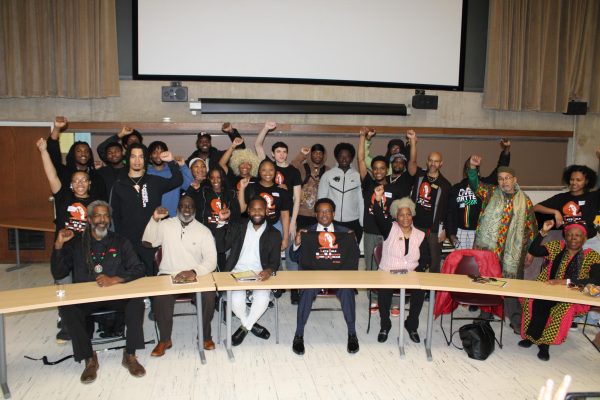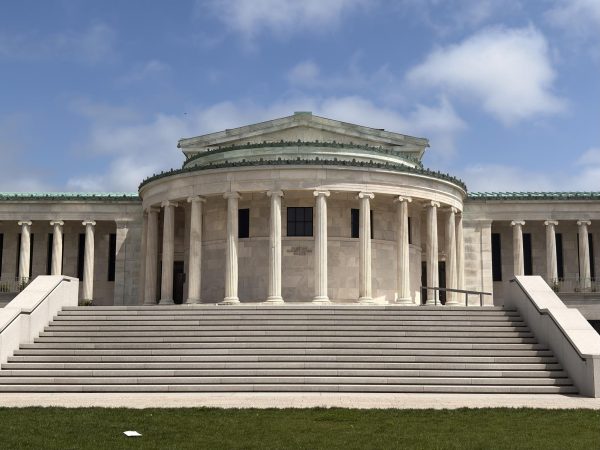College works on solutions to alleviate campus Internet issues
Buffalo State residence halls will be increasing their WiFi bandwidth within the next few weeks in an effort they hope will put an end to daily digital frustration among professors and students.
Students living in residence halls on campus received an email on Oct. 11 stating that computing and technology services in conjunction with Residence Life are looking to increase the wireless connection of Resnet, the campus’ Internet service provider.
Bandwidth is what allows students to connect to the Internet.
The speed of the Internet is also dependant upon how much bandwidth is being used. The more devices being used, and the more downloading students do, the more the speed of the connection will decrease.
Timothy Ecklund, assistant vice president of housing and auxiliary services, said that they are hoping to double the amount of bandwidth that is currently available to students through Resnet.
He said that right now, the residence halls run on about 250 MB. The proposed upgrade would double the bandwidth to 500 MB.
“At 500 MB, we think it will operate closer to the speed students experience at their homes if they have Internet,” Ecklund said. “It will substantially increase the speed students experience.”
Kris Kaufman, director of housing, said that they are always looking to improve the quality of life for resident students. He said they hope residents will be able to see differences in their experiences using computers.
“It is our desire to increase the bandwidth in order to provide a better service for our resident students,” Kaufman said.
Currently, the only dorms with complete WiFi capabilities are the Student Apartment Complex and Tower 4. The rest of the residence halls only have wireless Internet on the first floor of their buildings.
Ecklund said that the transition into full wireless capabilities in all dorms should be completed by fall 2014.
The slow Internet connection has been a grievance for staff teaching classes and students on campus, especially those who live in dorms.
“We believe that [the delay] is due to the amount of bandwidth and that students have more devices using bandwidth these days,” Ecklund said. “Also, more students use the Internet for academics, to stream video and watch television.”
Robert Henning, a senior criminal justice student, said that trying to work around the Internet is really frustrating, especially when trying to do schoolwork.
“I’m glad that they’re finally doing something about it,” Henning said. “You get more aggravated with the internet than the 10-page paper you have to write.”
Many different issues can cause a slower Internet connection.
Having multiple devices connected to the WiFi will cause the Internet speed to decrease since more information is being carried back and forth throughout the different gadgets.
Students streaming videos and music throughout the Internet also may cause a slower connection.
In the email sent to resident students, some of the speed issues also come from an increased number of movies and music being downloaded by students.
These occurrences factor into how much bandwidth is being used.
Ecklund said since they already receive bandwidth under an existing contract, they would look to increase the amount they are getting under the same contract.
“Hopefully, students will be able to complete class research faster,” Ecklund said.
Erica Nuzie, a senior education student, said that she agrees with the decision to purchase more bandwidth. She said the Internet can get really slow at times and downloading anything can get really hard.
“Sometimes it never works at all,” Nuzie said. “I think it’ll make students a lot happier.”
After purchasing the addition bandwidth, a reassessment of the issue will be done to decide if more needs to be bought or not.
Ecklund said the computing and technology services has tried to increase the bandwidth each year as much as the campus Internet capabilities increased.
Kaufman said in their student surveys, residents have previously indicated the desire for increased WiFi capability. He said that the process may take some time, but they want to figure out all of the options available in order to work on the services requested.
“We are working with various entities both on campus and others to review the WiFi needs within the residence halls in order to expand it further,” Kaufman said.
Email: [email protected]







